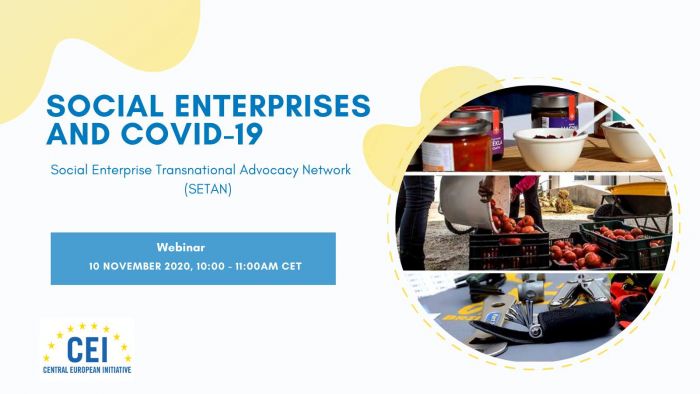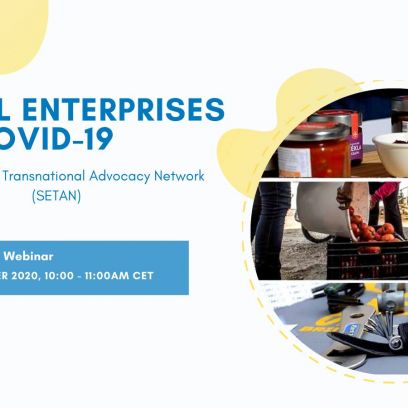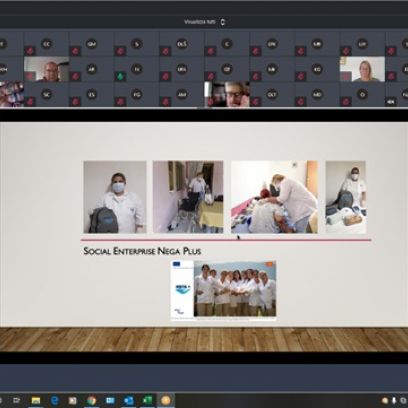The Covid-19 health crisis has gravely impacted social enterprises: loss of income and shortage of staff are only two of the significant challenges they are facing. Many have managed to adapt to the current situation; however, social enterprises are likely to collapse without proper support and understanding from public administrations. The crisis has affected people’s lives in substantially different ways - highlighting underlying structural inequalities across the globe. Despite the difficult situation, social enterprises are providing innovative solutions and strengthening public services to complement government actions. The activities of social enterprises have repeatedly proven to be capable of identifying and implementing alternative solutions to expand social innovation and social economy. This emergency has demonstrated the urgent need to rethink our economy. Thus, during and after the crisis, social enterprises - in addition to their traditional purpose - can develop a much larger role, inspiring transformation, increasing efficiency and resilience throughout the socioeconomic framework.
These were the topics tackled during the webinar “Social enterprises and COVID-19”, organised by the Central European Initiative-Executive Secretariat (CEI-ES) on 10 November. Participants from 14 countries gathered and discussed how to strengthen social enterprises’ vision and role by improving knowledge and raising awareness on vital issues in the time of COVID-19.
What has emerged is an evident state of crisis of the sector, which has registered “75% loss of income only in the Balkan Countries”, as reported by Ms. Jelena Hankic – CARITAS Serbia, SOCIETIES Project. A crisis which has mostly remained unnoticed, often dismissed by decision-makers.
As explained by Suzanne Wisse-Huiskes from the EUCLID Network social enterprises are suffering from a lack of voice in the public sector. An interactive exchange, especially with local administrations, should be strengthened, especially in critical times. Social enterprises could play a forefront role during emergencies, thanks to both their flexibility to adapt to new conditions and their mandate to respond to economic issues with a social approach. Indeed, the sector is reorganising and responding, activating support services necessary for social enterprises during the current emergency, as proved by the many best practices presented by Stefan Chichevaliev from the Social Entrepreneurship Observatory in Skopje (North Macedonia).
The CEI-ES is coordinating the Social Enterprise Transnational Advocacy Network (SETAN), established in the framework of the INTERREG Central Europe project SENTINEL by organisations in 6 countries that shared the idea that social economy and social enterprises are crucial for the convergence of disadvantaged Central European regions. SETAN is an open network.
Contacts: marconato@cei.int



